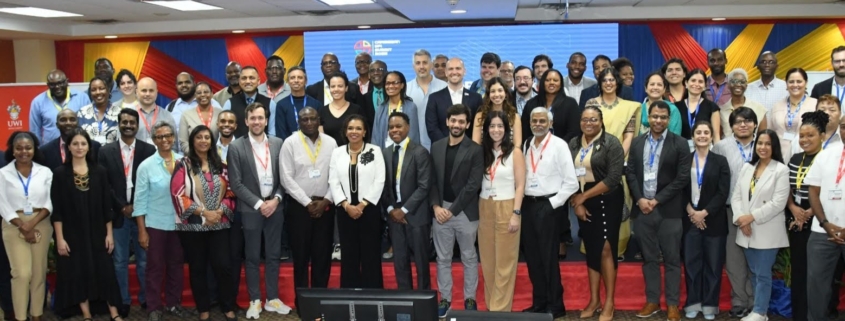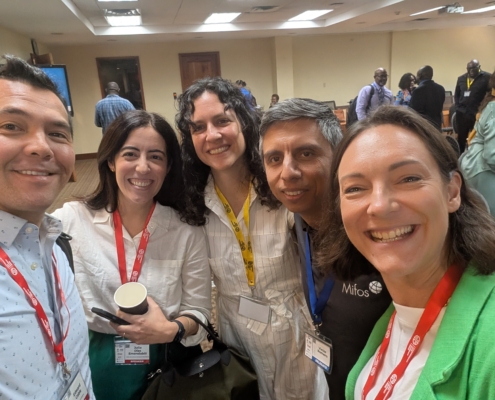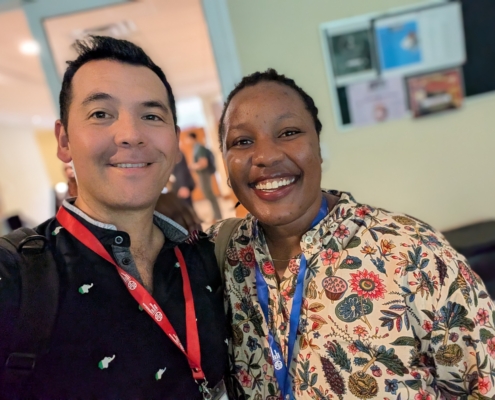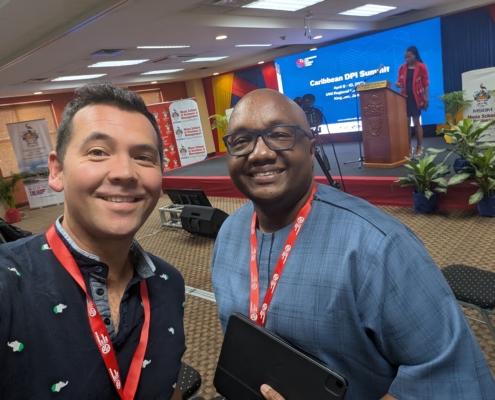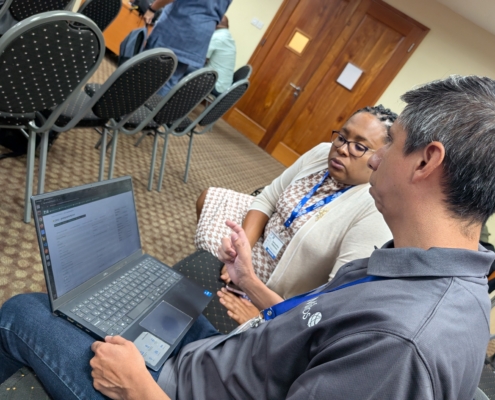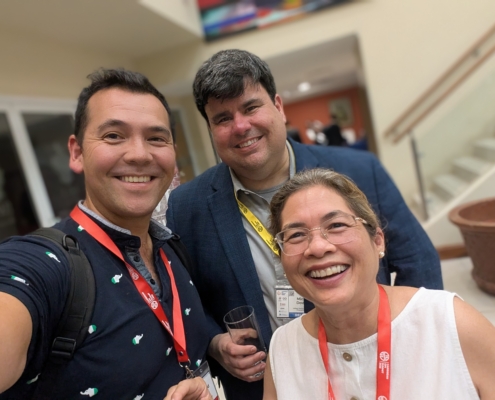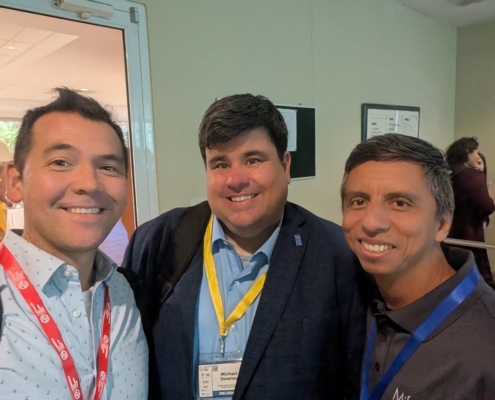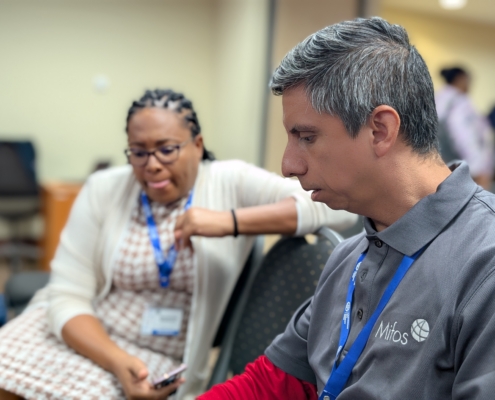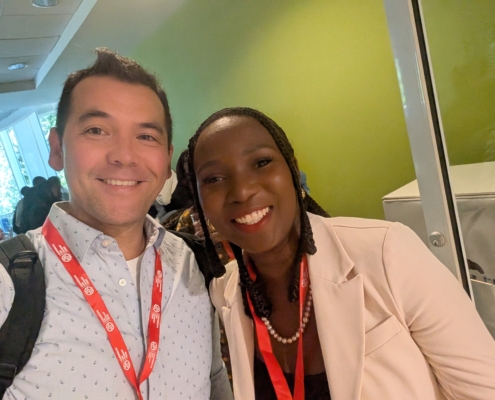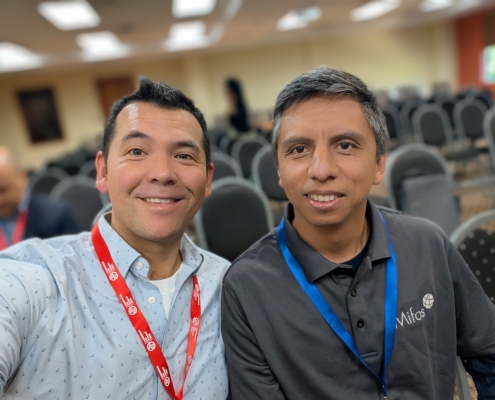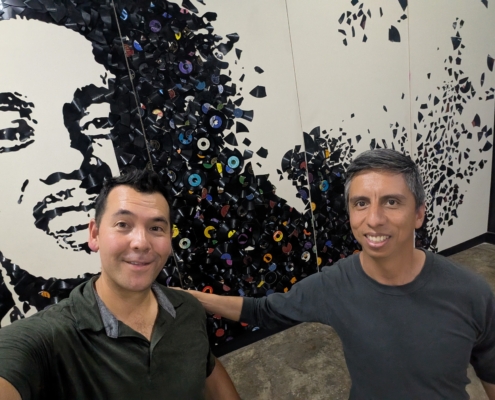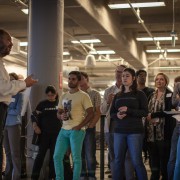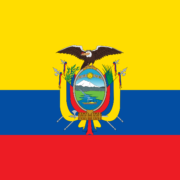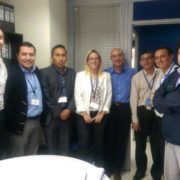Mifos attends Inaugural Caribbean DPI Summit in Jamaica
A look back and reflection on the Caribbean Digital Public Infrastructure Summit at Mona School of Business and Management, Kingston, Jamaica. 8-10 April 2025.
Mifos was delighted to be invited to participate in the Digital Public Infrastructure (DPI) summit in Kingston, Jamaica earlier this month. Our sincere appreciation goes out to the organizers of the summit, Matthew McNaughton & Aura Cifuentes of Co-Develop, for giving Victor Romero and Ed Cable the chance to attend including Ed Cable participation on the panel, Scaling Open-Source Solutions for Public Service Delivery, and Victor Romero during a workshop on Social Protection.
This inaugural Caribbean DPI Summit held at The University of the West Indies, Mona captured the essence of the first global DPI summit in Cairo but distilled it down into an immersive and intensive intimate experience where we could see firsthand the growing momentum there is across the region yet appreciate the unique challenges and constraints that come with building DPI for small-island nations. It helped to raise both the challenges and opportunities that present themselves at each stage of the implementation life cycle of DPI – Conception and Scoping, Strategy and Design, Development, Deployment, and ongoing Operations and Maintenance.

This event brought together innovators, policymakers, academics, NGOs and advocates to explore how the Caribbean region could harness the power of digital commons to foster economic resilience and social well-being.
In this article Ed Cable and Victor Romero look back over the event and the insights they gained from their perspectives from their relative roles in the Mifos DPI Ecosystem.
A Call to Action: Bold Steps for Regional Progress
It was the first time Victor had attended a DPI summit and he reflects on the energy and power of the event from the start:
The keynote address delivered a powerful message: “If we want to go fast, go alone; if we want to go far, go together” This summit underscored the urgency of adopting digital public goods as tools for bridging gaps in education, healthcare, governance, commerce, justice, financial inclusion, civil rights and climate resilience across the Caribbean.
Speakers highlighted that digital public goods—open-source software, open data, open AI models, and other shared digital resources—are not just technological solutions but catalysts for equitable progress
By embracing these tools, the region can leapfrog traditional barriers to development and position itself as a leader in the global digital economy.
Remarkable Progress in the Region
Country spotlights from the digital transformation and e-governance teams from the Dominican Republic, Trinidad & Tobago, and host country Jamaica, continued to impress Ed with their remarkable digital transformation efforts. Similar to what was demonstrated by the Philippines at MOSIP Connect in Manila, these countries all have built a robust architecture of foundational digital public infrastructure components centered around ID and data exchange that is propelling them down a journey of rapidly rolling out transformative use cases and solutions for their citizens. Within the region itself, there definitely is still a ripe opportunity for payment solutions to ease cross-border payments and help citizens access digital payments as Jamaica noted its own struggles in multiple failed mobile money implementations over the years.
Regional Challenges and Opportunities
As Victor identifies the Openness at the event to look at the specifics for the region, both in terms of the Opportunities and the Challenges, is key for the Caribbean but it also has wider relevance across the LAC region.
Participants at the forum discussed the unique challenges faced by the Caribbean, including limited access to cutting-edge technologies, fragmented regulatory frameworks, and insufficient investment in digital infrastructure. However, these challenges were framed as opportunities for innovation and collaboration. For instance, the digitization of public services through DPIs can enhance transparency, improve citizen engagement, and reduce operational costs—a critical step toward building smarter governments
One panelist emphasized the role of digital public goods in addressing climate change, noting their potential to provide real-time data analytics and predictive modeling to mitigate environmental risks (Cadastro Ambiental Rural – CAR System). This aligns with broader efforts to combat climate change using technology and which can be harmonised with other social programs that promote the well-being of the local and small farmers, for example this can be applied to the “Sembrando Vida” in Mexico which has been a success program that is mitigating the migration and the deforestation.
Lessons from Global Initiatives
Attendees learned about best practices from regions like Latin America and the Caribbean (LAC), Asia and Africa, where conferences on digital public goods have already demonstrated significant impact.
These examples served as a reminder that regional cooperation is key to scaling up digital innovations.
Moreover, the forum celebrated the achievements of innovators who are developing locally relevant digital solutions.
The Need for Collaboration
Ed reflects that while leadership from these spotlight countries was on display and regional knowledge sharing and re-use was a key focus of the summit, there seemed to still be an air of skepticism from smaller countries that the larger players would share their innovation. The delicate balance of going faster alone vs going further together was a recurring theme throughout the summit and it was often raised about how to actually achieve better collaboration and sharing of knowledge and innovation at the regional level of CariCom as well as the broader LAC region.
DPGs – it’s not just a Build vs Buy decision.
The flow of the summit was perfectly orchestrated as immediately after highlighting the need for collaboration, a tangible and practical solution around an ecosystem-based approach to building DPI using DPGs emerged. Julia Vieira de Andrade Dias Emendabili of Inter-American Development Bank imparted a very powerful message around DPI not being just a binary build vs buy decision but the option of an OSS-based approach using DPGs to build on open source independently or with a vendor to avoid any lock-in. This presentation was eye-opening in helping many countries to discover this DPG-based approach and philosophy, setting the stage for the need to be more aware of the specific DPGs and how they could be re-used and adapted within local country contexts.
Given this approach of re-use and adaptation of open source DPGs to create sovereign self-guided solution is somewhat novel for the region, it reinforced the importance of the ongoing collaboration we have with DPGs in attendance Open Function (OpenFn) andOpenCRVS to demonstrate the art of what’s possible via the rapid deployment of end to end demos of DPG-based solutions through #DaaS tools like Mifos Gazelle.
DaaS – A Deeper Look
The session from CDPI including two DaaS case studies helped to elaborate further on the DaaS concept as not just a technology toolkit but a comprehensive and holistic engagement inclusive of funding as well. Similar to Ed’s observations at the MOSIP Connect event, the need for Gazelle on the supply and demand side was confirmed, and its valuable fit as a key tech toolkit as part of DaaS. While Gazelle in its current form doesn’t aim to support production-level deployments, it helps countries understand the use cases that can be enabled by DPGs by closing the huge gap of time
Supporting DPI Sustainably
Continuing further in the journey of the DPI implementation lifecycle beyond conception, design, and development of a DPI solution there was also a healthy debate on the sustainability and sovereignty of DPI and the role that DPGs, large system integrators and smaller local system integrators can play in the development, implementation and long term support with great input from Alok Gupta of EkStep Foundation and Daniel Abadie of Centre for Digital Public Infrastructure – CDPI. It was rightly recognized that larger SIs lack the motivations to stick around for longer term support yet smaller SIs who could fill that role might not have the ability to fully invest in the capacity to deploy multiple DPGs.
The region seems poised and catalyzed for great growth in transformative DPI adoption as it was great to see Michael Downey of UNDPand Kim Mallalieu highlight the Trinidad OSPO that will help to spur this regional collaboration and Re-Use, develop capacity across the sector and help shape the culture and mindset for countries to contribute back upstream and enable ecosystems to be built on top of DPI.
Safeguards by Design
In Ed’s current role as co-chair of the Universal DPI Safeguards Framework working group, he was happy to see that there was a strong focus on inclusivity and safeguards. Countries are looking to move at the speed of trust and build and deploy with Safeguards by design through powerful tools like the Caribbean DPI policy landscape to reuse and adapt policies.
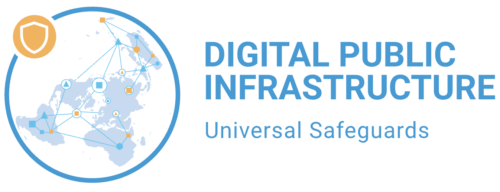
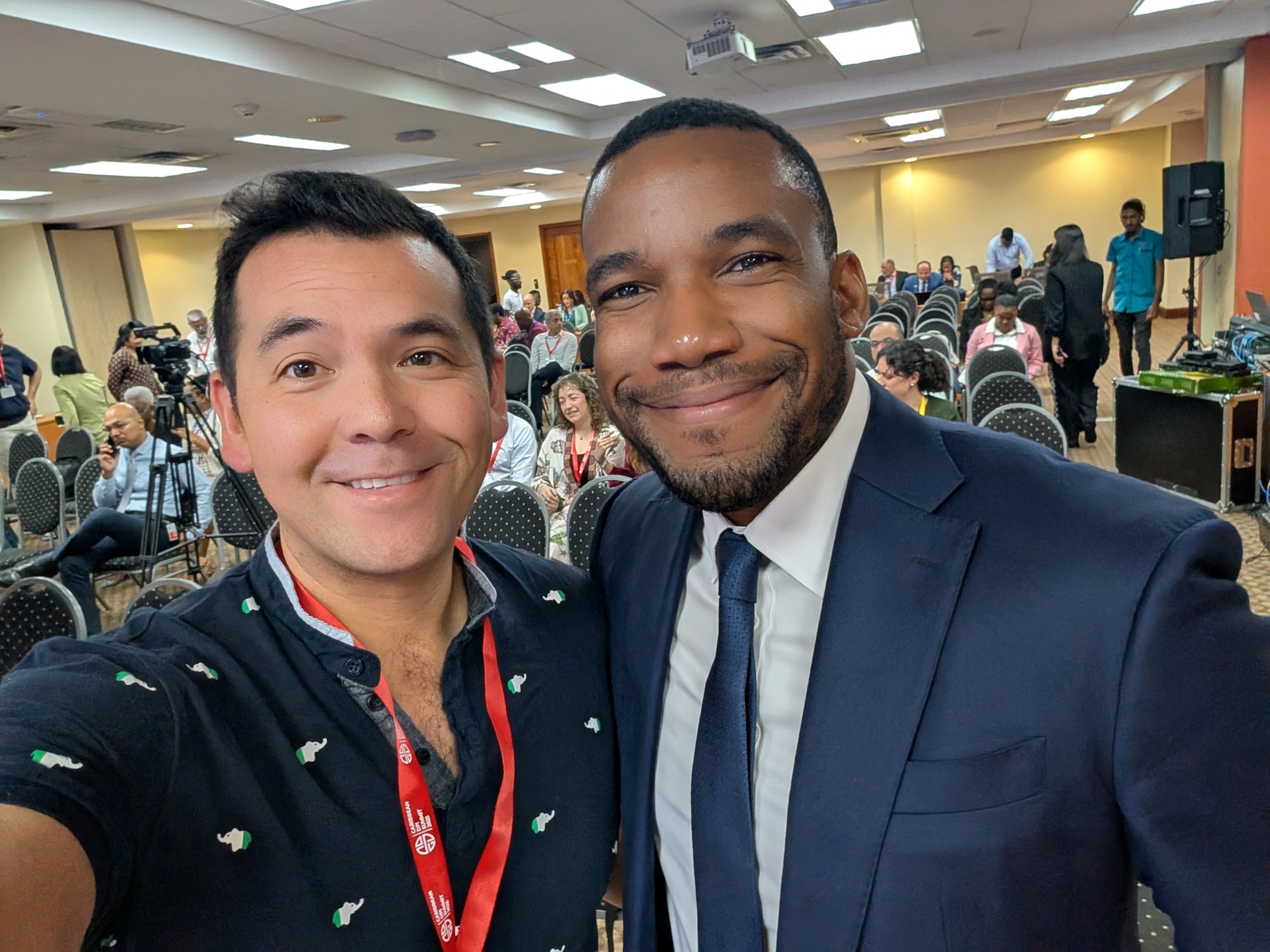
Acting Together: A Roadmap for the Caribbean
To translate vision into action, the forum concluded with a roadmap for stakeholders across the Caribbean. Key recommendations included:
- Policy Harmonization : Governments must work together to create unified policies that support the adoption and scaling of digital public goods.
- Capacity Building : Educational institutions should prioritize training programs in digital literacy and open-source development.
- Public-Private Partnerships : Collaboration between governments, private sector entities, and civil society organizations will be crucial for funding and implementing DPG projects.
- Community Engagement : Local communities must be empowered to co-create and benefit from digital solutions tailored to their needs.
Conclusion
The Caribbean DPI Summit marked a pivotal moment for the Caribbean’s journey toward digital transformation. By embracing digital public goods, the region has an unprecedented opportunity to drive inclusive growth, enhance resilience, and secure a brighter future for all its citizens. As delegates departed the venue, there was a palpable sense of optimism and determination—a shared belief that bold, timely, and collaborative action will ensure the Caribbean remains at the forefront of the digital revolution
The key message of this report is that the Caribbean needs to take further action now, with the support of the local and international partners, if it is to be adequately prepared for the future.
Scaling our Presence in the Region through Local Partners
Once again Mifos would like to thank the organizers for the invitation to attend and the opportunity to participate more deeply. Ed Cable got to share his perspective more broadly on the panel entitled Scaling Open-Source Solutions for Public Service Delivery in LAC while Victor Romero during that panel and a breakout workshop on Social Protection had the chance to share the unique experience working with Infotec to deliver a highly scalable agile loan management solution, SIBI, for Financiera para el Bienestar (Finabien). Together we were a powerful duo highlighting the breadth and global reach of our DPG and the practical real-world experience of a local system integrator building, supporting DPI with the country while contributing back upstream.
Shared Infrastucture Pilot in Trinidad & Tobago
Mifos is looking forward to our growing presence in the Caribbean as we kick off our first regional shared infrastructure deployment of core banking infrastructure to transform the credit union sector in Trinidad & Tobago. Ed got to meet personally with more than a half dozen countries in the Caribbean learning more about specific challenges they have with last-mile financial inclusion and rolling out digital payments. We are also eager to work with Victor to replicate our Finabien experience in Mexico across other countries throughout Latin America.

